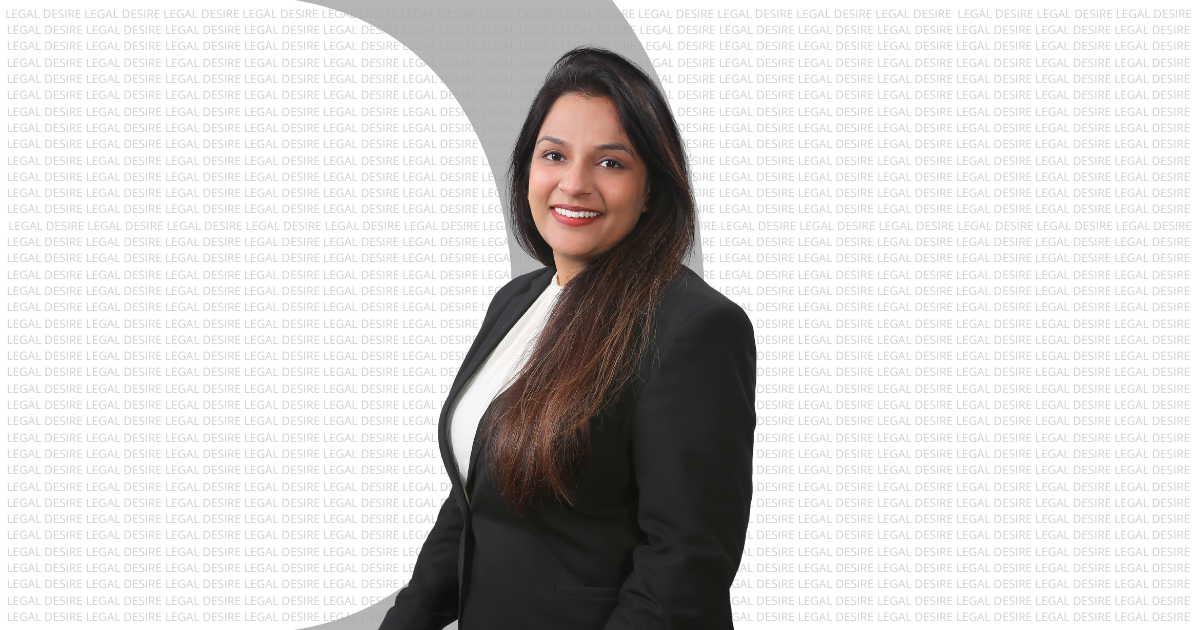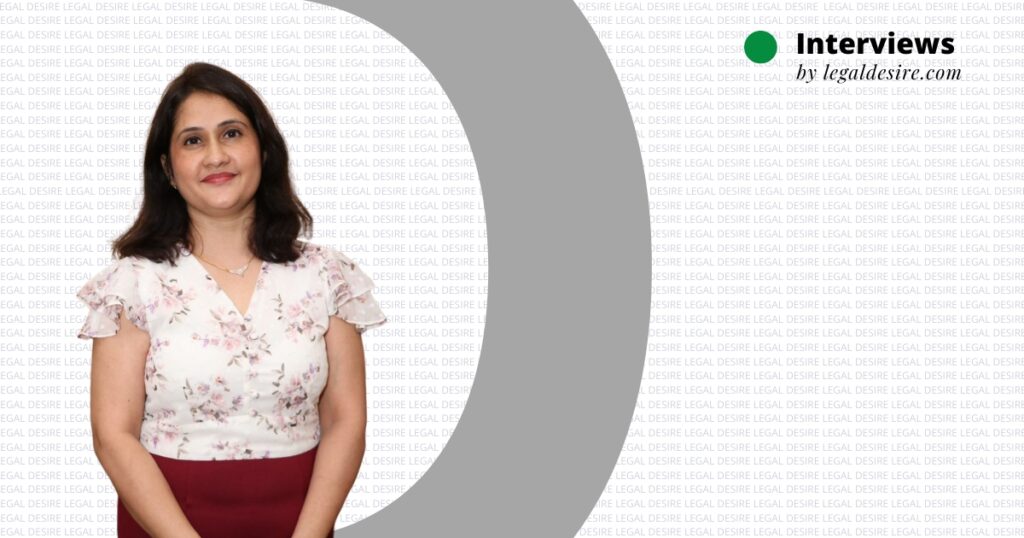Now Reading: In Conversation with Arushi Gupta, Lead – Intellectual Property and Media Practice at Areness
-
01
In Conversation with Arushi Gupta, Lead – Intellectual Property and Media Practice at Areness

In Conversation with Arushi Gupta, Lead – Intellectual Property and Media Practice at Areness
Advocate Arushi Gupta leads the IP division at Areness. She is an experienced counsel with a demonstrated history of assisting and advising national and international clients in niche areas of Intellectual Property. She also advises her clients in all-around services in the media and entertainment sector and manages a wide portfolio of legal contracts and solutions. She works closely with her clients in creating and setting strategic direction and negotiating deals in relation to valuation and cross-border licensing of IP. Her experience includes a broad spectrum of deals and structures through research and development agreements, royalty monetizations, and strategic partnerships and alliances. She also works with various companies to maximize value and revenue from intellectual property portfolios and in settling IP disputes and litigation in a way that allows them to optimize their assets. She completed her formal education at St. Paul’s and pursued B.A.LL.B. from Amity Law School, I.P University.
Arushi talked about the IP industry and skills needed around media law with Apoorva Mehta, Executive Manager at Legal Desire
- How was your journey as a law student to become a well-known IP Lawyer?
Any journey that we embark upon is determined not just by destiny but also by our hard work and conviction. Being a fist generation lawyer, I was not acquainted with the field of law. The initial years of law school were a little overwhelming for me as I had to put in a lot of effort in discovering and understanding the entire industry. I interned at various courts to understand the practices and also made sure I study hard enough to not lose out on my basics.
So, my years at Amity Law School were more focused on academics and grabbing the right enough knowledge and skills required for the profession.
- According to you, why has Intellectual Property Law emerged as the most exciting career choice from 2020?
With growing technologies and business opportunities, Intellectual Property Law has outgrown itself rapidly within a few years and has brought along with itself, several new opportunities.
The IP Sector has seen exponential growth as the corporations and companies now focus more upon acquiring intellectual assets than tangible properties like land and machinery.
Also, Intellectual Property does not function in exclusivity, it is linked to various other sectors like fashion, media, and entertainment, pharmaceutical, information technology, etc., so as long as we have thinking individuals in any of the sectors who are innovating and inventing, the requirement of IP lawyers will persist.
- According to you, what are the scope and application of practicing IP rights in India in the coming years?
Like we just discussed, the scope of IP is enormous. India event though earlier was working at a slower pace has now coped up with the existing innovations and technological advancements. The processes and implementation of new policies under IP law have also been expedited so as to keep up with the pace of advancements and prevent obsoletion in the realm of IP.
The National IPR Policy which was introduced in 2016, has given a huge impetus to the IP ecosystem in India by creating IPR awareness, increase in IP filings, commercialization of IPRs, and strengthening IPR administration and management.
As the economy is expected to boom in the post- Covid world, the IP sector is going to witness more growth and development. If the pace at which the IP institutions and mechanisms have grown in the last decade is maintained, India will soon become one of the leading vibrant IP ecosystems in the world.
- What is the skill set which every IP in-house counsel should possess?
An IP In-house counsel would by no means be different from any other IP lawyer, besides the fact that their focus would be one organization and not many. No IP lawyer can be bereft of the knowledge of the ongoing market trends and scope of innovation. The problems/ queries that crop up in IP sector are more often than not based on the prevailing circumstances or any futuristic ideas of innovation, seldom do we come across rudimentary issues or situations. Going by what is written in black and white is therefore hardly of any help.
So, I wouldn’t say this just for an in-house but for all IP lawyers that they are supposed to be well-read, well-informed, have an eye for innovation and mind for creativity.
- What is the kind of work you can get as an IP Lawyer?
Other than basic filing and prosecution and Litigation, an IP Lawyer can get various kinds of work. It could be of an Investigator while trying to unleash counterfeiting of goods, or that of a researcher if one has to look up and assess the prior art, it could be of an auditor or a certified valuer for the tasks of due diligence and valuation. You could be drafting various forms of agreement that are required while transferring IP from one party to another.
The scope of work for an IP Lawyer increases with the knowledge and experience that a lawyer gains in the industry.
- How to acquire practical skills in IP & Media law?
One of the constraints of the IP & Media law is that the bridge between the law and its practice has to be built. The law in words and in practice has a lot of differences. One of the ways to acquire IP and Media Law practical skills is to intern at the IP and Media Law boutique law firms. To gain maximum from the minimum has to be our effort. Each internship may not help us learn as much, however, each of the interns should be proactive in gauging the activities that take place all around them and even at the firm where they are interning. Even the tiniest research could help us learn some of the most vital concepts and principles of law.
- According to you, how different credible courses and certificates enhance one’s capability in any field of Law? For example, we see a lot of young lawyers buying IPR courses from WIPO?
The subjects that we study in law schools are abundant in number. The subjects have to be covered within a span of a given time of 3 or 5 years. The curriculum of the subjects thus has to be compressed and be taught within the designated number of lectures. Therefore, even though one has studied a subject in law school, a lot remains to be discovered and studied about.
In contrast to law school curriculum and lectures, these courses like the ones from WIPO cover small aspects of IP and are therefore taught in great detail. Some of these also provide offline study material as well as templates in form of handouts.
Therefore, these courses are helpful however, how much of the knowledge is attained by each student or attendee is upon them to grasp and learn.









